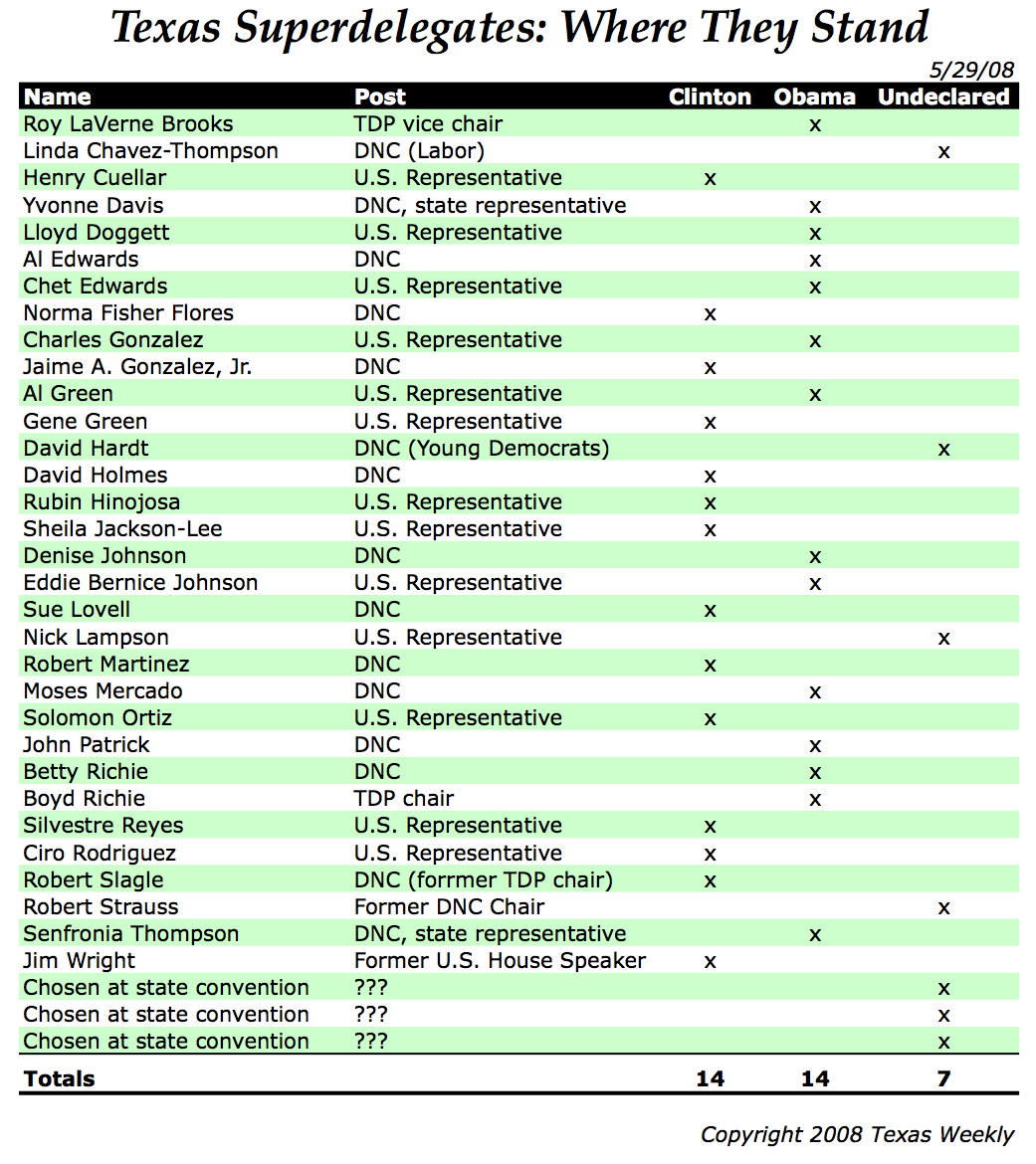Republican John McCain has the support of 9.4 percent of the people who voted in the Texas Democratic primary in March, according to a poll done at the behest of the Texas Observer.
They were trying to find out whether Republicans could have had an effect on the Hillary Clinton-Barack Obama contest here.
Maybe.
Leland Beatty, who did the polling, says there's no way to tell how those McCain supporters actually voted. Clinton beat Obama in Texas by 3.4 percent, so you can say there were enough there to change the result even though you can't prove it.
Beatty found other curiosities. Only 34.5 percent of the Democrats who voted in March have voted in previous Democratic primaries, while 10.8 percent were crossover voters who have some Republican voting history, and 54.7 percent hadn't voted in previous primaries. He polled them about their presidential preferences. For the newbies, Obama got 37.6 percent, Clinton got 34.8 percent, and McCain got 13.7 percent. Among the crossovers, McCain got 33.1 percent, Obama 25.1 percent, and Clinton, 21.7 percent.
Beatty also maintains that the state's entering a partisan realignment, an assertion he bases on Democratic gains in new voters, voter registration, and higher numbers of crossover voters. The donkeys beat the elephants in each of those categories, and he thinks that's a sign of lasting changes.
The polling was paired with some linguistic analysis by James Pennebaker, chairman of the psychology department at the University of Texas at Austin. He said he's not a political guy, but was asked to analyze the things people said when they were talking about the three candidates. His observations:
• Clinton supporters use shorter words. They used more first-person words like "I, me, and my." They used more concrete, less abstract, language. They used more present-tense words than supporters of the other candidates. They tended to be more positive and optimistic.
• Obama's supporters used bigger words, were more abstract in their language and tended, along with the Clinton supporters, to refer to past events more than McCain's bunch. They use the first person less than supporters of the other two. And they were more positive than the other two groups.
• McCain's group uses big words, fall somewhere in the middle on the concrete/abstract language, were less likely to talk about the past, and were more likely to use negative and "inhibitory" language. Pennebaker said they were more likely to emphasize avoiding bad things, and less like to talk about pursuing good things.
The surveys included 2,500 people interviewed between May 8 and May 19. The margin of error is +/- 2.7 percent.


